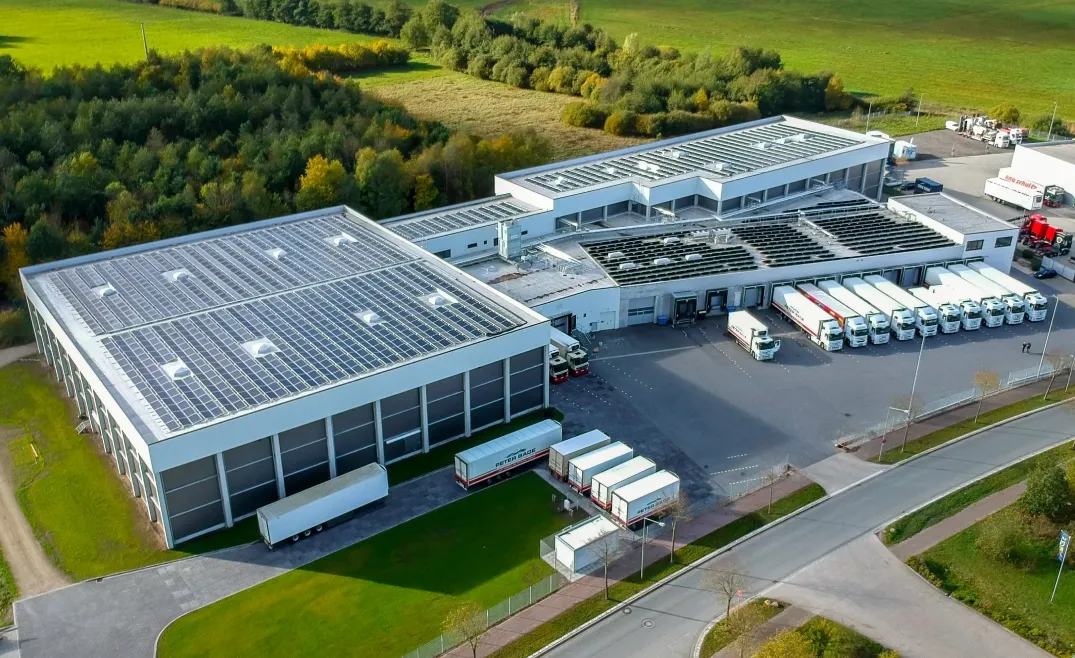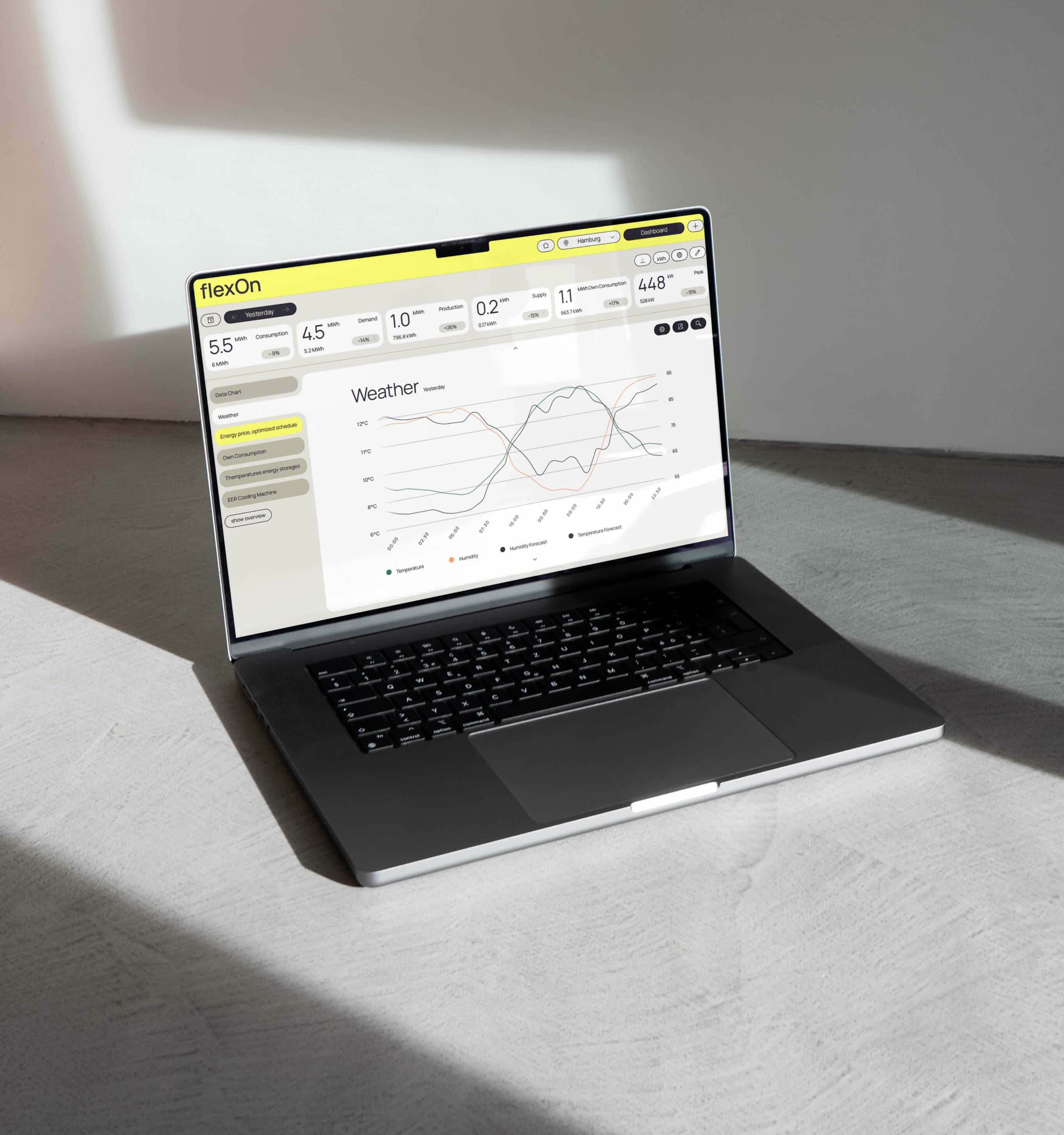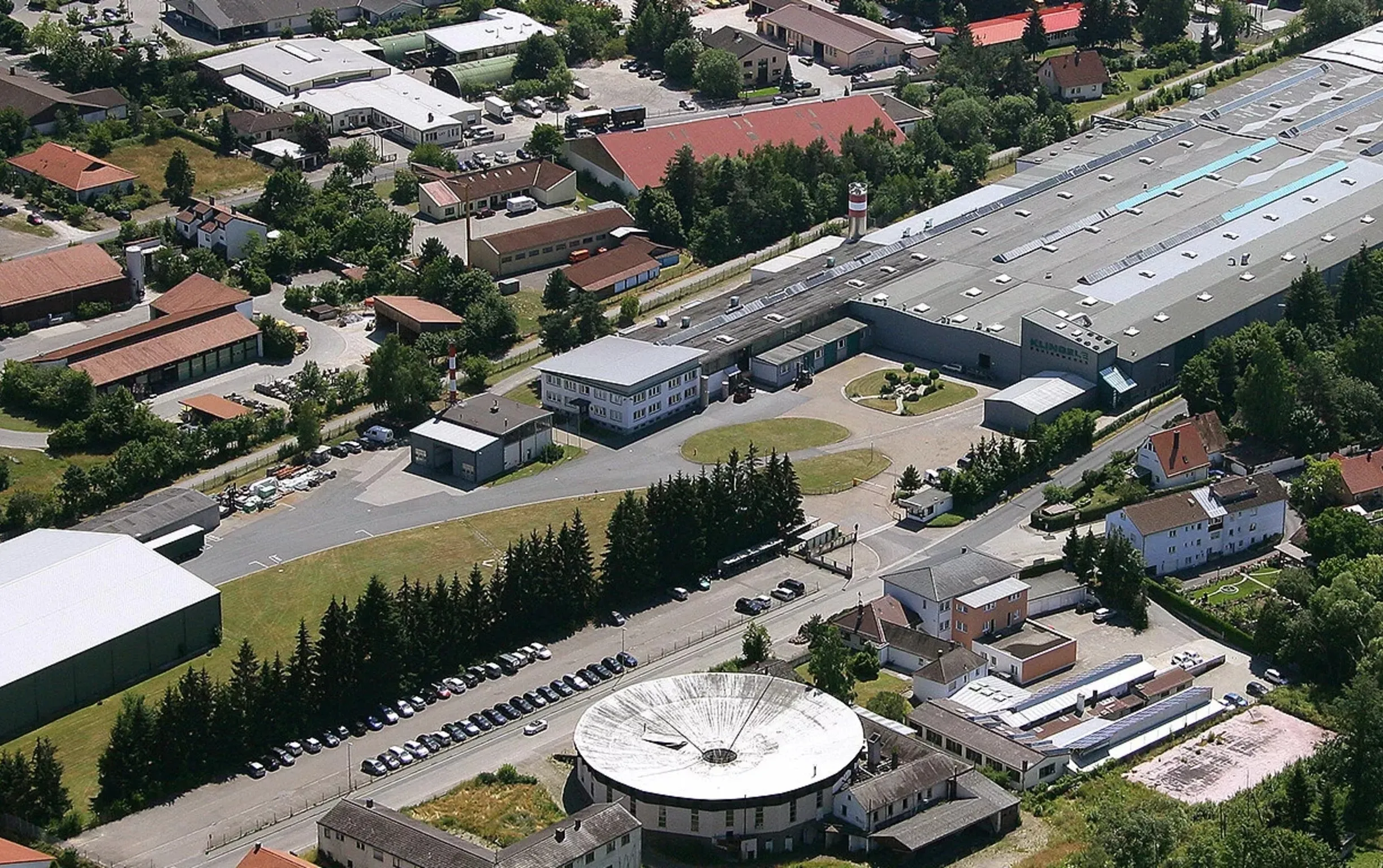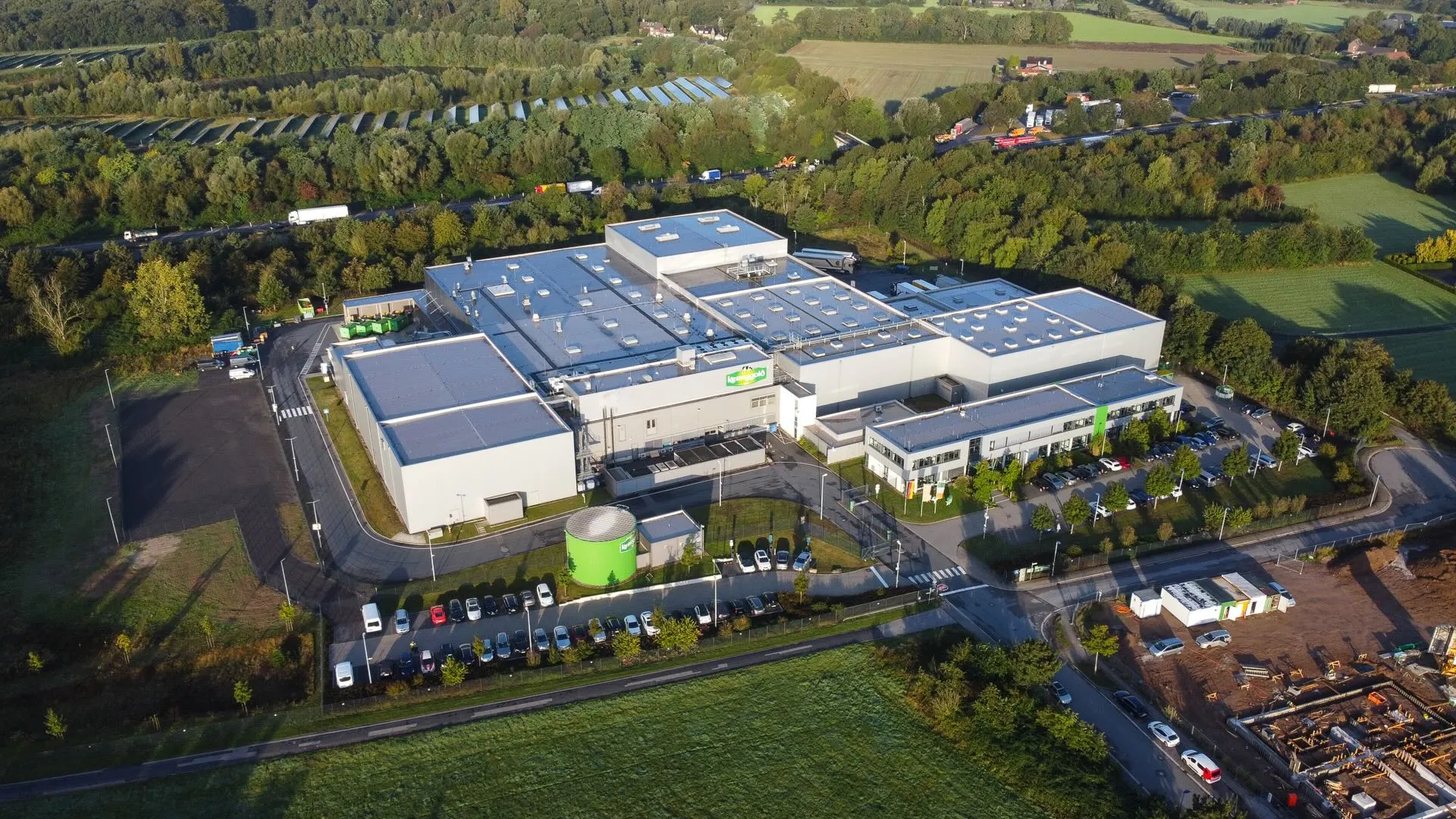Cold chain logistics company reduces power consumption by 11.3% with flexOn
Previously, the cold chain logistics company Peter Bade GmbH had no overview of its energy flows. Thanks to flexOn, these challenges were overcome, self-consumption of the solar installation was increased, and significant savings were achieved.
Results at a glance
By bringing together all data and assets in flexOn, we have enabled holistic control of energy flows for the first time. This allows loads to be shifted intelligently and ensures that all savings potential is fully realised.
Our customer


Since 1929, Peter Bade GmbH has been providing professional food transport services for clients in industry and trade. With its 6,500 m² cold and logistics hall in Neumünster, the company can not only manage transport operations but also clean load carriers, supply returnable containers, and store fresh products at various temperature levels.
Industry
Cold chain logistics
Location size
6500m2
Optimisation areas
Refrigeration system & heat pump, solar installations
The challenges
Lack of full overview
Prior to flexOn, Managing Director Bullien manually had to compile load curves manually. Without a complete overview, processes and consumption could not be tracked transparently.
Untapped potential
Without detailed load data, dynamic load management was hardly possible. Neither spot market prices nor midday solar generation could be utilised efficiently – leaving much potential untapped.
Our solution for Peter Bade GmbH

Various assets & systems on a single platform
With the implementation of the energy management system flexOn, all historical data, relevant systems, and assets were consolidated. This enabled Managing Director Alexander Bullien to instantly monitor all asset data and energy flows in 15-minute real-time intervals.

Automated optimisation & control
After integrating all systems, our team carried out initial test runs to determine the level of flexibility potential and aligned this with different optimisation goals. Since then, our intelligent energy management platform flexOn has been analysing all data and, with the help of artificial intelligence, has been generating forecasts for electricity consumption and generation.

Unlocking full potential
The AI-based schedules are designed to consume electricity when it is cheapest on the spot market or when surplus energy is available from the company’s own PV systems. As a result, the Peter Bade GmbH has achieved significant savings in both costs and CO₂ emissions.
What convinced the Managing Director
“By using the energy management platform flexOn, our goal was to gain a clear overview of the company's energy flows, export measurement data effortlessly, and above all reduce electricity costs and grid charges.”

Annual savings
By using flexOn, Peter Bade GmbH saves 135 MWh of electricity each year. Based on figures from the German Environment Agency, this equates to around 0.4 kg of CO₂ per kilowatt hour – or 54 tonnes of emissions saved annually.
Detailed results


Market price optimisation

flexOn optimises electricity costs by analysing day-ahead prices and automatically shifting consumption to periods when electricity is both green and affordable. The goal is to minimise electricity costs through load shifting. By optimising the cold storage system – which accounts for around 60 to 70% of the site’s consumption – Peter Bade GmbH achieved 15.6% lower electricity prices in the first quarter of 2024.

Efficiency improvement

By optimising operation and automating control, the flexOn energy management platform increased the efficiency of the refrigeration system, cutting electricity consumption by 11.3% in the first quarter of 2024. In addition, flexOn manages the company’s heat pump to make greater use of waste heat from the refrigeration system, further boosting efficiency. As optimisation in this area is still ongoing, it has not yet been included in the calculation.

Atypical grid usage

flexOn reduces grid load during peak periods through peak shaving, increasingly replacing grid electricity with self-generated solar power. The refrigeration system also acts as storage: temperatures are lowered more during off-peak times, so consumption falls in peak phases. As a result, flexOn reduced Peter Bade GmbH’s grid charges by 30% in 2024 and with further optimisation, savings of 44% are expected in 2025.
More success stories

Klingele
Um Lastspitzen zu reduzieren und den geplanten Batteriespeicher optimal zu nutzen, benötigte Klingele ein leistungsfähiges Energiemanagementsystem. flexOn erfasst sämtliche Energiedaten in Echtzeit, visualisiert sie übersichtlich und steuert den Batteriespeicher intelligent – für höhere Effizienz, geringere Kosten und eine zukunftsfähige Energiestrategie.





